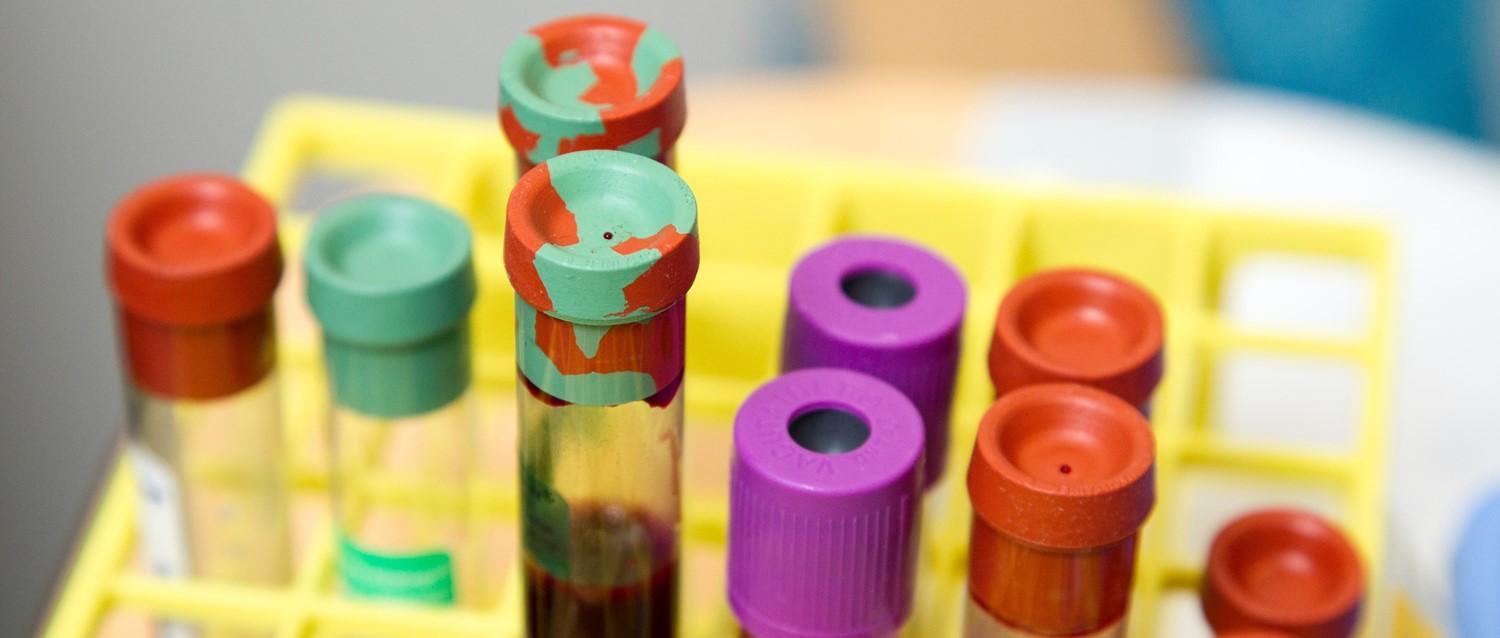
Facing your fear of the doctor: tips for easing medical anxiety
Peer reviewed by Dr Krishna Vakharia, MRCGPAuthored by Victoria RawOriginally published 11 Nov 2024
Meets Patient’s editorial guidelines
- DownloadDownload
- Share
- Language
- Discussion
Many of us feel anxious or nervous when visiting the doctor. But people with iatrophobia have a more intense, irrational fear. If you have doctor anxiety, we have some advice from a medical professional to help you overcome it.
In this article:
What is iatrophobia?
Phobias are overwhelming fears that some of us have in response to specific things or events. They can result from a distorted view of danger about a situation, animal, experience, or object.
Intense phobias can disrupt your normal activities, causing you to go to great lengths to avoid the triggers of your fear. In some cases, phobias can significantly impact the quality of your life - particularly if you have iatrophobia.
Dr Paul Ch'en, GP and joint-founder of The Oxford Longevity Project, explains that iatrophobia is a fear of doctors or any medical treatment. It falls under the category of specific phobias - where you may feel anxiety, panic, or avoidance when thinking about or encountering doctors, medical professionals, hospitals, or treatments.
"This might develop from previous negative medical experiences, fear of illness, or even specific anxiety about a certain medical procedure," he says. "If you have iatrophobia, this fear can interfere with seeking necessary medical care - which of course can have serious consequences for your health."
Given that people with this phobia may avoid doctors, it's hard to estimate how many people in the UK experience iatrophobia. However, studies suggest that anxieties about health and medicine are widespread.
"While not everyone affected would be diagnosed with a full-blown phobia," adds Ch'en. "A significant number of people show varying levels of fear or anxiety relating to medical visits."
What causes iatrophobia?
Back to contentsThere are several reasons you might feel afraid or anxious about visiting the doctor or receiving medical treatment.
According to Ch'en, these can include:
Medical PTSD - a form of post-traumatic stress disorder (PTSD) that develops after a person experiences or witnesses a traumatic medical event.
Negative past experiences of doctors - including those from childhood.
Health anxiety.
Worry about loss of control.
Generalised anxiety disorder (GAD).
Ch'en explains that people who already suffer from GAD, panic disorder, or other specific phobias have a greater chance of developing iatrophobia. Phobias can sometimes run in families - whether due to genetic predispositions, or learned behaviours from parents or other family members.
"Popular media often portrays doctors or medical professionals in stressful or negative lights," he says. "This can amplify fears - especially if you have little direct medical experience."
Continue reading below
Are other phobias associated with iatrophobia?
Back to contentsIatrophobia often overlaps with other phobias - especially those connected to medical settings, treatments, or health issues.
Ch'en says that some of the most common phobias linked to iatrophobia include:
Fear of needles or injections (trypanophobia).
Fear of hospitals (nosocomephobia).
Fear of blood (haemophobia).
How to treat iatrophobia
Back to contentsIatrophobia treatment often involves talk therapy, relaxation techniques, and gradual exposure to medical appointments to manage anxiety.
CBT
Cognitive behavioural therapy (CBT) is an effective approach for managing anxiety, and can help you overcome your fear of visiting the doctor.
"Along with relaxation techniques - such as meditation - CBT can help people you identify and change negative thoughts, beliefs, and behaviours relating to your fear of medical environments," says Ch'en. "For example, thoughts like "doctors will always give me bad news" are addressed and re-framed into realistic, less anxiety-inducing beliefs."
Exposure therapy
By gradually exposing yourself to situations that trigger your fear, you can slowly overcome your anxieties around going to see the doctor.
Ch'en suggests that gradual exposure therapy can - over time - desensitise you to your fears. This may involve visualising a doctor's visit, watching medical shows, or even just entering a clinic. The process is carefully controlled and gradual, starting with the least anxiety-inducing step.
"Doctors can play a part in helping patients with this," he says. "When I've had a patient with iatrophobia, I've tended to go above and beyond to establish rapport. I try to be empathetic to whatever the causes are for their iatrophobia."
Building trust
If the root cause of iatrophobia is a lack of trust towards medical professionals, stemming from a bad - or perceived bad - experience - Ch'en believes that small, positive steps to rebuild trust are key to regaining your cooperation.
"I believe the best approach to building trust is to listen to and acknowledge your concerns and expectations, while also addressing unhealthy behaviours in a kind, caring manner," he says.
Ch'en adds that doctors and patients should share responsibility for their health and wellbeing. While doctors are here to assist, patients should take an active role in making proactive steps and changes.
Continue reading below
What to expect from a doctor's appointment
Back to contentsCh'en explains that a doctor's role is to offer support and guidance throughout your healthcare journey - whether that involves interventions such as medicine, therapy, clinical testing, or motivational advice.
However, a big part of our job is listening, so providing you with accurate and relevant information during your appointment is essential for effective treatment.
"When you meet your doctor, we'll typically ask what brings you in today. This is your opportunity to explain your symptoms, concerns, or the reason for your visit," says Ch'en. "Doctors are trained to listen and assess your situation, so provide us with as much detail as possible."
Ch'en suggests preparing a list of your symptoms, medical history, current medicines - including over-the-counter variations and supplements - and any questions or concerns you have.
"Be open and honest, and have all relevant information about your health and lifestyle to help your doctor understand your situation better," he says. "It can be helpful to write down key points during your appointment - especially instructions about medicines or tests."
He adds that you should always ask if anything is unclear, or if you need more information about your diagnosis or treatment.
It's common to feel anxious about seeing the doctor, even without a phobia. However, overcoming these concerns or fears is crucial for your health. While it might seem easier to put off making an appointment, remember that a doctor's visit could save your life.
Dr Ch'en's essential tips for facing your fear of the doctor:
Explore CBT or relaxation techniques as a way to manage anxiety around visiting the doctor.
Gradually expose yourself to doctor visits to help desensitise your fears over time.
Trust that your doctor is there to listen to you without judgement.
Be open and honest with your doctor about your health concerns, lifestyle and emotions.
Prepare a list of your symptoms, medical history, current medicines and supplements to bring to your appointment.
Don't hesitate to ask any questions you may have.
Patient picks for Phobias and fears

Mental health
How to get over a fear of blood tests
Blood tests are a great diagnostic tool, giving vital information to doctors about the state of a patient's health. But for many of us, the idea of having blood drawn from our arm can put us into a panic. If you're feeling nervous about an impending test, try our tips for managing the procedure.
by Gillian Harvey

Mental health
Overcoming your fear of needles
It goes without saying that nobody likes injections. Faced with a routine visit to the pharmacist - be that for a travel vaccination or a flu jab - most people treat the experience as a necessary evil. For some people, however, disliking injections runs a lot deeper than that. It is estimated that up to 10% of the population have a genuine needle phobia, meaning they have a persistent and excessive fear of needles. This can manifest as deep anxiety before and during the consultation, or even avoiding vaccinations altogether.
by Abi Millar
Article history
The information on this page is peer reviewed by qualified clinicians.
Next review due: 11 Nov 2027
11 Nov 2024 | Originally published
Authored by:
Victoria RawPeer reviewed by
Dr Krishna Vakharia, MRCGP

Ask, share, connect.
Browse discussions, ask questions, and share experiences across hundreds of health topics.

Feeling unwell?
Assess your symptoms online for free
Sign up to the Patient newsletter
Your weekly dose of clear, trustworthy health advice - written to help you feel informed, confident and in control.
By subscribing you accept our Privacy Policy. You can unsubscribe at any time. We never sell your data.